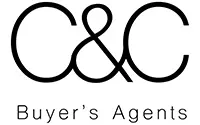Why Cottage & Castle declined REBAA: Lack of transparency, legal redundancy, and no added value for ethical buyer’s agents.

The Real Estate Buyers Agents Association (REBAA) presents itself as the industry body for buyer’s agents in Australia. Its stated mission is to raise professional standards, promote ethical conduct, and provide consumer confidence in the industry. It aims to achieve this by implementing membership criteria, enforcing a code of conduct, and advocating for independent buyer representation free from conflicts of interest.
In theory, this framework should ensure that members operate with integrity and competence, setting them apart from less scrupulous operators. However, the reality of how REBAA functions in practice raises questions about its effectiveness and actual value - both to consumers and to the professionals it seeks to represent.
While REBAA’s mission sounds commendable, its execution leaves much to be desired. The association’s membership criteria and code of conduct are largely self-governed, relying on peer oversight rather than robust, independent regulation. This raises concerns about accountability - especially when the organisation is made up of the very businesses it seeks to regulate.
Another key issue is that REBAA’s criteria for membership focus more on compliance with its internal rules than on actual expertise, results, or the value delivered to clients. Simply being a member does not guarantee that a buyer’s agent is particularly skilled, ethical, or effective - only that they meet the association’s administrative requirements.
Furthermore, REBAA often positions itself as the gold standard for buyer’s agents, but its influence is limited. There’s little public awareness of the association, and its accreditation carries little weight with consumers, who are more concerned with an agent’s track record than their membership in an industry group.
Ultimately, REBAA operates more like a professional club than a regulatory body. It offers networking and credibility among peers but does little to drive meaningful improvements in industry standards or consumer outcomes. For these reasons, Cottage & Castle has chosen not to align itself with REBAA.
Despite presenting itself as an industry body committed to raising professional standards, REBAA is, in reality, a privately held, for-profit company. This fundamental contradiction raises serious questions about its true priorities. Unlike a government-regulated body or a not-for-profit professional association, REBAA’s structure means it operates with commercial interests at its core.
It creates a clear conflict: is REBAA primarily focused on protecting consumers and upholding industry standards, or is it a business designed to generate revenue from its members? There’s little transparency around how these funds are used or how decisions are made within the organisation.
REBAA positions itself as the peak body for buyer’s agents, but in practice, it operates alongside - rather than above - the state-based Real Estate Institutes (REIs). These REIs are the established regulatory and professional bodies overseeing real estate practice in each state, setting the legal requirements for licensing, training, and conduct.
Unlike REBAA, which is a private, for-profit entity, the REIs have direct involvement in industry regulation and professional development. They provide recognised training, enforce government-mandated compliance, and engage with policymakers on legislative changes. Membership in an REI is typically seen as a fundamental requirement for agents across all sectors of real estate, including buyer’s agents.
This raises the question: what additional value does REBAA provide beyond what is already covered by the REIs? The answer is unclear. While REBAA promotes itself as an authority on buyer’s agency, it does not regulate licensing, enforce consumer protections beyond its internal guidelines, or provide any unique, industry-recognised accreditation that isn’t already addressed through existing state-based regulations.
For an organisation that claims to set the standard for buyer’s agents in Australia, REBAA operates with a surprising lack of transparency. Unlike genuine industry bodies that openly publish their rules, guidelines, and consumer protections, REBAA keeps much of its internal framework out of public view.
One glaring example is its Code of Conduct - a document that, in theory, should outline the ethical and professional expectations of its members. Yet, despite REBAA’s claims of upholding high standards, this code is nowhere to be found on its website or any public platform. If consumers can’t access the very principles REBAA members are meant to follow, how can they assess whether the organisation genuinely enforces professional integrity?
Beyond this, REBAA does little to educate or inform the public. Unlike state-based real estate institutes, which regularly update their members and the wider industry on legislative changes, REBAA provides no such service. It offers no consumer-facing resources of real substance - no policy insights, no industry analysis, and no meaningful advocacy beyond self-promotion.
The lack of transparency extends to REBAA’s own operations. The association’s primary contact number is a mobile phone - unusual for a professional body claiming national authority. Also, by all indications, its listed office in Bond Street, Sydney, appears to be a virtual office, suggesting there is no physical presence or dedicated infrastructure behind the organisation.
One of REBAA’s core claims is that its members must exclusively act for buyers and never accept commissions, kickbacks, or financial incentives from selling agents, developers, or other third parties. On the surface, this sounds like a strong ethical position - but in reality, this standard isn’t unique to REBAA.
In Victoria, for example, the Estate Agents Act 1980 (Section 55) already prohibits agents from receiving commissions from both sides of a transaction. This legal safeguard exists independently of REBAA, ensuring that no buyer’s agent - REBAA member or not - can legally receive undisclosed payments from vendors or selling agents.
Additionally, state-based consumer laws across Australia reinforce this principle. Misleading conduct, secret commissions, and conflicts of interest are already regulated under Australian Consumer Law (ACL) and individual state real estate laws. REBAA’s membership criteria don’t provide any additional protection that isn’t already covered by existing legal requirements.
Another area where REBAA’s claims fall flat is in the treatment of rebates. State-based regulations (such as those enforced by Consumer Affairs Victoria) require any discounts, commissions, or rebates received by a buyer’s agent to be disclosed to the client in writing. Whether an agent is a REBAA member or not, they are bound by these legal requirements.
REBAA does not have enforcement powers beyond its own membership. A non-REBAA buyer’s agent operating under state legislation is held to the same legal standard as a REBAA member. The claim that REBAA membership somehow ensures a higher level of professional integrity is misleading - especially when all legitimate buyer’s agents are already subject to government-enforced regulations that go far beyond REBAA’s internal policies.
For consumers, the idea that a REBAA membership guarantees ethical conduct is simply not true. A buyer’s agent who follows the law is already prohibited from accepting secret commissions or acting against their client’s best interests—whether they hold a REBAA membership or not.
For Cottage & Castle, the decision is clear: rather than paying for a membership to affirm what is already legally required, we focus on delivering transparent, results-driven service. Our commitment to ethical practice isn’t a marketing claim—it’s a legal obligation, as it should be for every buyer’s agent in Australia.
For many experienced buyer’s agents, REBAA offers little beyond an optional membership badge. We choose to focus on delivering radical transparency and results for our clients - without paying to belong to an organisation that doesn’t offer meaningful oversight or additional credibility.
At its core, REBAA is a group of operators who, while their intentions may have been good and well, have set up an organisation to pretend to regulate how they operate their own industry. In reality, it functions as little more than a very expensive backlink and a very expensive badge - one that we see no reason to invest in.
If you’d like to talk it through, we can map out the next step.
No obligation. Just context.



It all starts with a confidential conversation.

